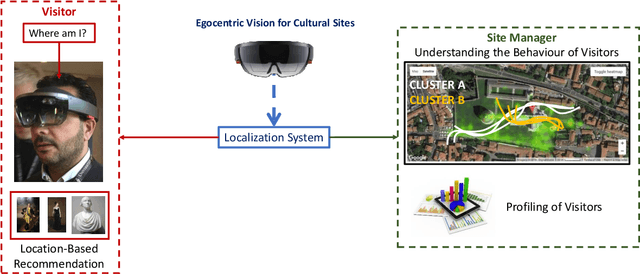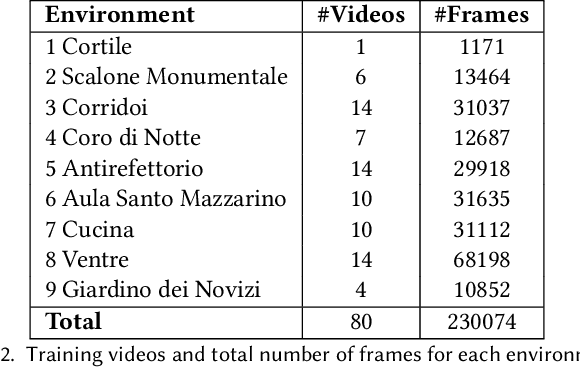Egocentric Visitors Localization in Cultural Sites
Paper and Code
Apr 10, 2019



We consider the problem of localizing visitors in a cultural site from egocentric (first person) images. Localization information can be useful both to assist the user during his visit (e.g., by suggesting where to go and what to see next) and to provide behavioral information to the manager of the cultural site (e.g., how much time has been spent by visitors at a given location? What has been liked most?). To tackle the problem, we collected a large dataset of egocentric videos using two cameras: a head-mounted HoloLens device and a chest-mounted GoPro. Each frame has been labeled according to the location of the visitor and to what he was looking at. The dataset is freely available in order to encourage research in this domain. The dataset is complemented with baseline experiments performed considering a state-of-the-art method for location-based temporal segmentation of egocentric videos. Experiments show that compelling results can be achieved to extract useful information for both the visitor and the site-manager.
 Add to Chrome
Add to Chrome Add to Firefox
Add to Firefox Add to Edge
Add to Edge